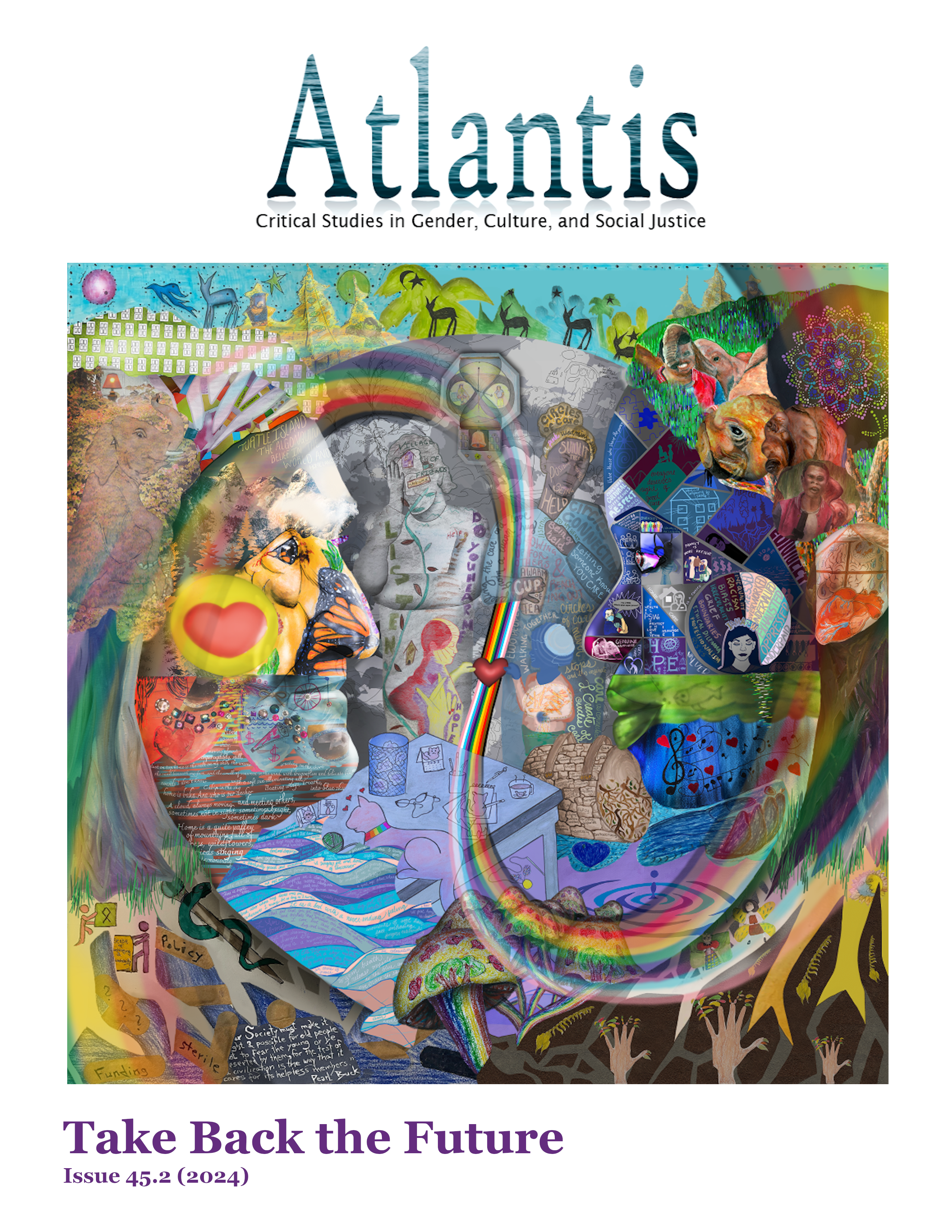Relational Practices in Arts-Based Research
A Roundtable Reflection on the Fostering Dialogues Project
Keywords:
arts-based methods, care, community-engaged research, LGBTQ+Abstract
Fostering Dialogues was an arts-based action research project that brought together LGBTQ+ older adults and homecare personal support workers in a virtual arts and dialogue program to explore presents and futures of community-based care. In this Research Note the artist and researcher team reflect on the researcher-artist relationship and arts-based collaboration, touching on topics including community engagement, horizontal decision-making, and the power of images to affect change.
References
Fostering Dialogues project participants. Imagining Futures of Care. 2023. Digital Mural. Egale Canada, https://egale.ca/egale-in-action/fostering-dialogues-arts-based-research-project/
Kunt, Zeynep. 2020. “Art-based Methods for Participatory Action Research (PAR).” Interactions: Studies in Communication & Culture 11(1): 87-96.
Pang, Celeste, Brittany A.E. Jakubiec, and Melanie Schambach. 2023. “Fostering Dialogues: An Arts-Based Action Research Project Imagining Futures of Community-Based Care with Homecare Personal Support Workers and LGBTQ Older Adults.” Egale Canada. https://egale.ca/egale-in-action/fostering-dialogues-arts-based-research-project/
Downloads
Published
Issue
Section
License
Copyright (c) 2024 Celeste Pang, Brittany A.E. Jakubiec, Melanie Schambach

This work is licensed under a Creative Commons Attribution 4.0 International License.
Authors who publish with this journal agree to the following terms:
1. Authors retain copyright and grant the journal right of first publication, with the work simultaneously licensed under a Creative Commons Attribution 4.0 International License that allows others to share the work with an acknowledgement of the work's authorship and initial publication in this journal.
2. Authors are aware that articles published in Atlantis are indexed and made available through various scholarly and professional search tools, including but not limited to Erudit.
3. Authors are able to enter into separate, additional contractual arrangements for the non-exclusive distribution of the journal's published version of the work (e.g., post it to an institutional repository or publish it in a book), with an acknowledgement of its initial publication in this journal.
4. Authors are permitted and encouraged to preprint their work, that is, post their work online (e.g., in institutional repositories or on their website) prior to and during the submission process. This can lead to productive exchanges, as well as earlier and greater citation of published work. Read more on preprints here.







